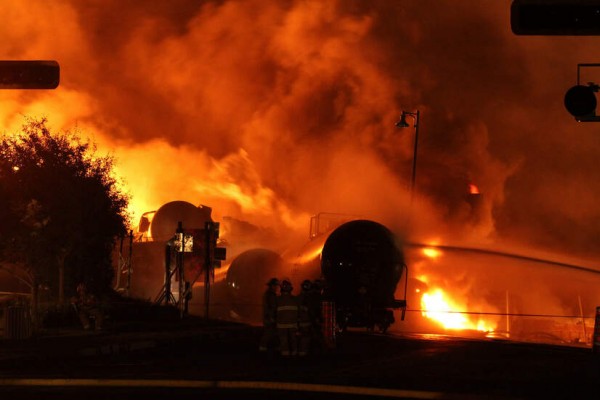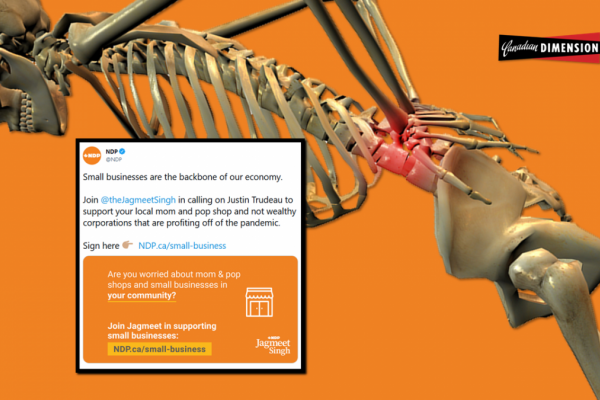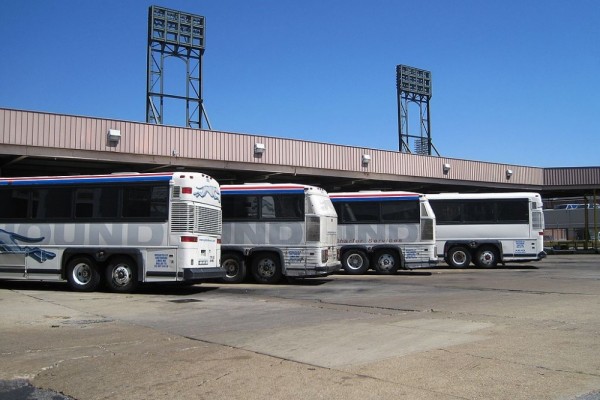Canadian mining and the tragedy in Burkina Faso
“There is a real problem with lack of accountability and effective impunity when our Canadian companies operate overseas”

After the deaths of eight miners at Burkina Faso’s Perkoa zinc mine, owned by the Vancouver-based Trevali Mining Corporation, watchdogs have accused Canadian mining firms of acting with impunity abroad. Photo courtesy Al Jazeera.
On April 16, a torrential downpour flooded the Perkoa zinc mine in Burkina Faso, 120 kilometres from the nation’s capital, Ouagadougou. The flooding trapped eight employees—six Burkinabè, one Tanzanian, and one Zambian—underground. Around one month of efforts by the government of Burkina Faso and the Vancouver-based Trevali Mining Corporation, which owns 90 percent of Perkoa, proved unable to rescue them. Last week, Burkinabè authorities as well as Trevali reported that the eight trapped workers were dead.
Al Jazeera reports that “six of the missing miners’ families have filed cases against persons unknown for attempted manslaughter, endangering life and failing to assist a person in danger.” Meanwhile, the government of Burkina Faso has prevented Trevali officials from leaving the country while authorities investigate the causes of the accident. A statement from the prime minister’s office read: “Precautionary measures have been taken to prevent the persons in charge of the mine from leaving the country and instructions have been given firmly to the minister of security for this.”
Canada’s Ambassador to Burkina Faso and Benin, Lee-Anne Hermann, took to Twitter in the aftermath of the tragedy to lament the damage caused not to the lives of the Burkinabè miners, but to the future prospects of Canadian mining companies. “On a most difficult day for [Canadian] mining companies,” she tweeted on May 19, two days after Trevali reported the deaths of the trapped miners, “it was a pleasure to meet with [Canadian company Fortuna Silver] to learn more about their Roxgold mine operations in [Burkina Faso] and [their] commitment to Responsible Business Conduct.” It is indicative of where Canadian foreign policy interests lie that instead of meeting with the families of the deceased miners, Hermann chose to meet with the CEO of a Canadian mining company and promote their investments in the country.
On a most difficult day for mining companies in on Tuesday, it was a pleasure to meet with @jganoza69 CEO of @Fortuna_Silver to learn more about their Roxgold mine operations in and commitment to Responsible Business Conduct.#RBC @TCS_SDC pic.twitter.com/7CxWr0DsZp
— Lee-Anne Hermann (@HermannCAN) May 19, 2022
While the exact causes of the mining accident remain unknown, some in Canada and Burkina Faso have blamed the flooding on Trevali’s alleged lack of preparation. Burkina Faso’s Prime Minister Albert Ouédraogo has reportedly criticized the “irresponsibility” of the mine’s managers, stating that shortly before the accident “dynamite was used on the open-air [part of the] mine, which weakened the [underground] gallery and enabled the flooding.” Jamie Kneen of MiningWatch Canada stated that “From an engineering standpoint, if you’re a mining company, you have a pretty good idea of what the potential worst case scenarios are, and whether you invest in the backup systems to deal with those emergencies is a management decision.” Indeed, a 2020 report by global management-consulting firm McKinsey found that, based on location, “a changing climate would mean a great risk of either water scarcity or flooding for mining operations in the years ahead [and] Iron ore and zinc mines [are] considered the most likely to flood.”
According to the above perspective, the accident was not only the result of unexpected rainfall during Burkina Faso’s dry season. Such an event was unlikely, but not an impossibility. Kneen implies that the lack of preparation on Trevali’s part is due to a lack of investment in backup safety measures. “They’re bringing in extra [water] pumps,” he explained to Alex Boyd of the Toronto Star, “which means they didn’t have them on hand.” He called on Canadians to take more of an active interest in where their country’s companies operate, and to understand how Canada’s mining industry gains access to the minerals that power their disproportionately comfortable and privileged lives.
“It’s a matter of cutting corners,” said Catherine Coumans, a research coordinator with MiningWatch, “It’s a matter of getting away with what you can get away with… There is a real problem with lack of accountability and effective impunity when our Canadian companies operate overseas.”
Zinc, the mineral on which Trevali primarily focuses, is the fourth most widely used metal in the world, surpassed only by iron, aluminum, and copper. It is commonly used as an alloy with copper, which produces brass, and as a coating on iron to protect from corrosion. Increasingly, investors are identifying zinc as a critical component in solar and wind technologies as well as rechargeable electrical batteries, products which are central to the “green transition” promoted by elements of the Canadian state and mining industry.
Several African countries, including Burkina Faso, Namibia, and South Africa, contain substantial zinc deposits, which have attracted the interest of transnational mining companies seeking profitable ventures. For instance, Trevali does not only own the Perkoa mine in Burkina Faso; it also owns 90 percent of the Rosh Pinah zinc-lead-silver mine in Namibia, another large mineral producer in which Canadian mining companies have operated since the country’s illegal occupation by the apartheid government of South Africa from 1915 to 1990.
In 2020, Canadian mining assets in Africa were valued at $36.5 billion. There are eight countries on the continent in which Canadian investments exceed $1 billion in value. Four of them are in West Africa (Mauritania, Mali, Burkina Faso, and Ghana), and the other four are in central and southern Africa (the Democratic Republic of the Congo, Zambia, Tanzania, and South Africa).
The importance of African minerals to the Canadian mining industry was evidenced at the recent Mining Indaba, an annual mining promotion event held in South Africa. Representatives from prominent Canadian mining companies such as Barrick Gold, B2Gold, and First Quantum Minerals (in addition to Arif Virani, Parliamentary Secretary to Minister of Small Business, Export Promotion and International Trade Mary Ng), gathered in Cape Town to exult the virtues of Canadian mining and express the need to secure valuable commodity flows in an era of “green transition,” “environmental, social, and governance” concerns, and global economic uncertainty resulting from the war in Ukraine.
This evening, PST Arif Virani hosted the annual Canada-Africa networking reception to mark the official start to Canada’s participation in #MiningIndaba2022. He welcomed a delegation of mining & mining supply companies who continue to build on existing Canada-Africa relations. pic.twitter.com/dQOVHgTmY5
— Canada in SA (@CanHCZA) May 8, 2022
At the Indaba, Canadian mining figures lavished praise upon Canada’s actions on the continent. Of course, they neglected to mention the numerous coups that Canada has supported in previous decades, such as those that overthrew Ghanian President Kwame Nkrumah and Congolese independence leader Patrice Lumumba, or Canada’s aggressive support for IMF privatization measures across Africa, which have intensified the exploitation of African resources by foreign (and predominantly Global North) companies and thereby supported the uneven developmental processes that underlie the imperialist global order.
The Canadian mining industry seems wholly unwilling to acknowledge its historical and present role on the continent. Indeed, a recent edition of industry magazine Northern Miner referred to China’s investments in Africa as “Chinese neo-colonialism,” while failing to mention any of the above history or the fact that, per capita, Canadian mining assets in Africa exceed those of China. Is it thus any wonder that the story of the Burkinabè miners killed at a Canadian-owned mine has received hardly any coverage in Canadian media? Only the supposed “neo-colonialism” of our geopolitical foes is worth discussing; our actual neo-colonialism is either ignored or whitewashed by the utterly meaningless mantra of “promoting Responsible Business Conduct.”
The Canadian state helped to crush anti-colonial liberation leaders in Africa and has been complicit in cementing foreign control over vital African resources, always with the assistance of our compliant corporate media. The accident at the Perkoa zinc mine in Burkina Faso must be placed in this context. While the facts remain to be investigated, it is nonetheless essential that observers view this tragedy alongside the long history of Canadian imperialism in Africa, and acknowledge that the primary goal of Canadian companies operating in the continent is to extract profit, not to improve the lives or guarantee the safety of indigenous African workers.
Owen Schalk is a writer based in Winnipeg. He is primarily interested in applying theories of imperialism, neocolonialism, and underdevelopment to global capitalism and Canada’s role therein. Visit his website at www.owenschalk.com.










